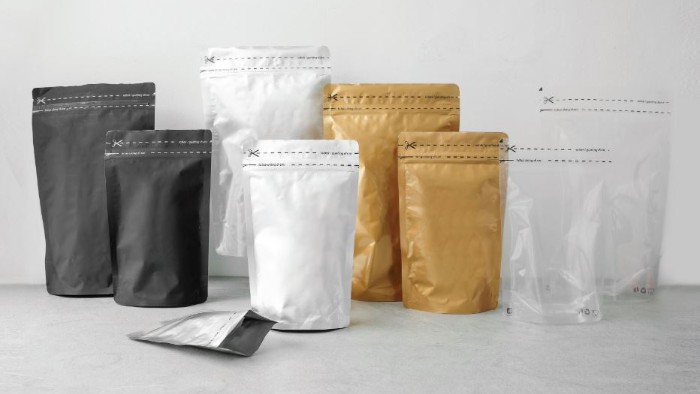In Malaysia, flexible packaging is sought after and is game-changing with innovative trends that satisfy the changes in consumer and businesses demands. Flexible packaging is gaining increasing prominence for the advantages it presents, and Malaysian packaging companies must understand its capabilities as the industry landscape reshuffles for greater operational effectiveness, sustainability and a competitive edge in the marketplace. In this article, we will cover the unique advantages of flexible packaging for companies in Malaysia.
- Cost-Effectiveness
Cost-effectiveness of flexible packaging is one of the main advantages of this type. Flexible pouch and film packaging materials reduce weight compared to traditional rigid packaging. Going from the 844 plastic packaging to an average of 311 will reduce your production costs and lead to much cheaper shipping, since packages of less weight can lower transportation costs (Nuo, 2017). For Malaysian businesses, especially in the food and beverage, cosmetics, and consumer goods sectors, savings in packaging and logistics can lead to improved profit margins and a competitive advantage in the market.
2. Versatility and Customization
The versatility of functions and designs offered by Flexible Packaging is beyond comparison. The diverse materials as well as sizes and shapes of packaging are available for businesses to use according to their needs. This versatility enables businesses to adapt their packaging for a wide range of products, including snacks, beverages, personal care items, and industrial goods. Additionally, printers are now capable of printing high-quality graphics for branding, which provides products with better visibility and visually attracts customers.
Malaysia poses unique challenges and opportunities for brands seeking to add a local touch to their offerings, as consumer preferences can differ significantly across regions and demographics. Intelligent packaging: Flexible packaging enables businesses to adjust their products to match local preferences and cultural subtleties, making it a key factor for market entry and customer interaction.
3. Extended Shelf Life
One essential advantage of flexible packaging is the extension of the shelf life of a product. These flexible materials can also act as excellent barriers against moisture, oxygen, and light — all major contributors to product degradation and spoilage. This is particularly important in Malaysia for food and beverage manufacturers, as consumers increasingly want to avoid food loss and ensure products retain their flavour and nutritional value over time.
This not only helps to mitigate wastage but also helps to address a pressing issue in Malaysia where a significant amount of food produced is wasted due to spoilage. One way businesses can align with sustainability objectives is through flexible packaging lines that help minimize waste and encourage responsible consumption.
4. Environmental impacts and sustainability considerations
As awareness about the environment grows globally, businesses here have also come under bigger same to adopt sustainable measures. Flexible packaging could be a key player in this transition. Flexible packaging materials are recyclable and creating them draws less energy and less resources than traditional rigid packaging options. Moreover, developments in biodegradable and compostable materials are leading to more sustainable packaging options.
In addition to that, the lightweight characteristics of flexible packaging can significantly lower carbon emissions when imported, which is in line with the aspirations for sustainable practices and a decreased carbon footprint in Malaysia. Switching to flexible packaging will help Malaysian companies comply with regulations while appealing to eco-friendly consumers, who take sustainability into account when buying.
5. Convenience and Portability
Convenience is a priority for consumers in this ever-increasing world of speed. Business location: Wide use of flexible packaging among Malaysian consumersPatricia De Silva, Lametayel Senior Brand Manager, said flexible packaging is convenient and versatile, and it thus remains a popular option among busy Malaysian consumers. Resealable pouches, single-serve sachets, easy-to-open bags, etc. improve user experience and make the product more usable and fun to use.
In addition, flexible packaging also tends to take up less space than rigid packaging, with consumer convenience in mind, as it is easier to transport — be it snack foods for a road trip or beauty and personal care items for travel. The portability aspect was actively popular among the Malaysian urban population, who are all about convenience and function when it comes to their shopping decisions.
6. Enhanced Product Protection
They offer better protection for products than traditional packaging across transport and storage. These materials and the construction enable flexible packaging to resist moisture, temperature changes, and impacts. This level of durability protects products from contamination and damage, keeping them safe from the production facility all the way to the consumer.
However, for Malaysian entreprises, especially for those exporting their products, they should use firm packaging to avoid losses due to spoilage or damage. Flexible packaging provides peace of mind that products will land in perfect condition and help maintain the company’s reputation for quality.
7. Optimized Production Processes
Flexible packaging can simplify production processes for a business as well. Flexible packaging uses less machine and setup time than rigid packaging solutions. This not only saves a lot of time and energy, but also means companies can respond quickly to market demand and to consumer trends, leading to faster production cycles.
Moreover, flexible packaging can easily be incorporated into automated production grids, thus improving your operational efficiency as well. For Malaysian manufacturers exploring ways to boost productivity and cut turnaround times, flexible packaging is a perfect fit with lean manufacturing principles.
8. Competitive Advantage in Marketing
Even in a competitive space, branding and differentiating your goods is key. The unique structure of flexible packaging helps all types of businesses to create custom-looking designs that capture the attention of consumers. The incorporation of high-quality graphics and unique shapes can greatly improve brand identification and consumer loyalty.
Flexible packaging can also directly communicate essential product information and brand storytelling on the package itself. This ability is particularly valuable for Malaysian businesses that are looking to engage their audiences with engaging stories about their products, sustainability initiatives or local heritage.
Conclusion
Flexible packaging is the solution for the packaging entrepreneurs in Malaysia With cost savings, shelf life extension, extreme convenience, and sustainability, flexible packaging makes a strong case for companies interested in innovation and success in a competitive environment. The Malaysian market is evolving, and flexible packaging solutions may help businesses meet consumer demands, marry operational efficiency and sustainability. Investing in flexible packaging will position Malaysian companies for success in the everchanging global marketplace.





